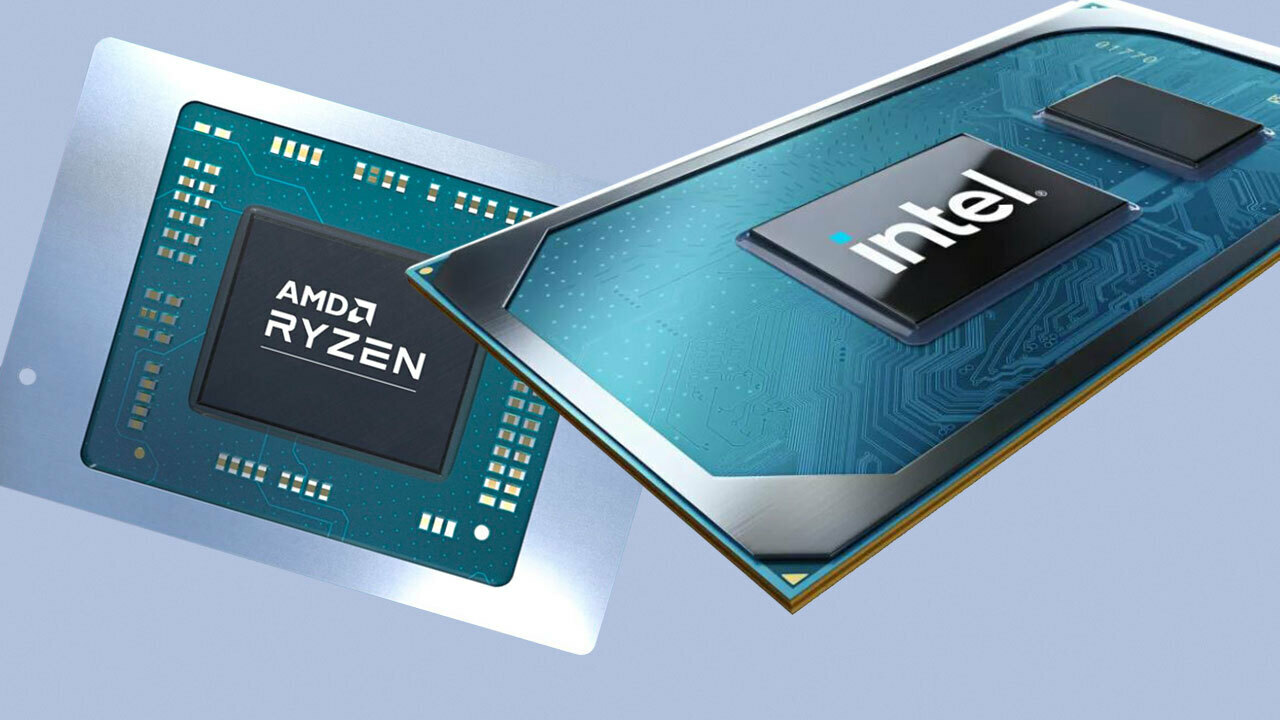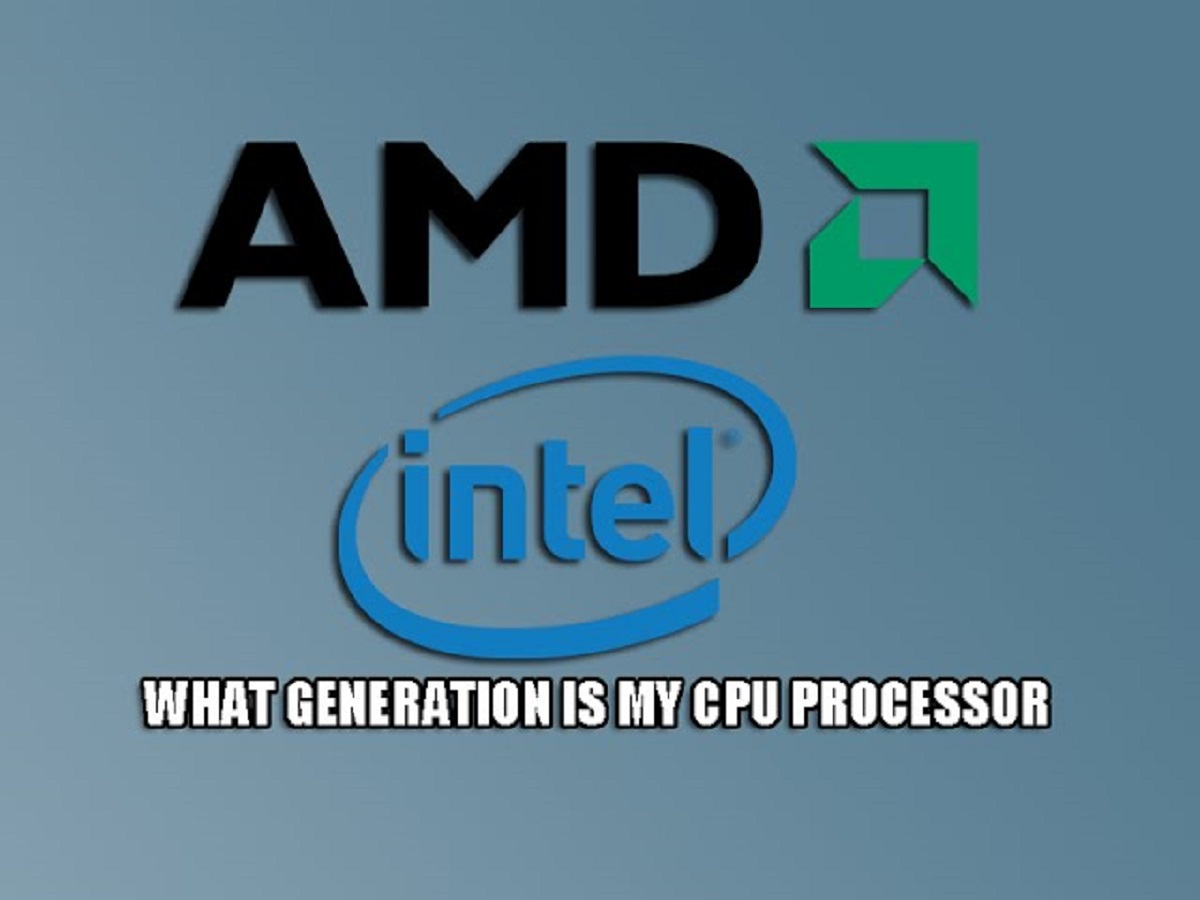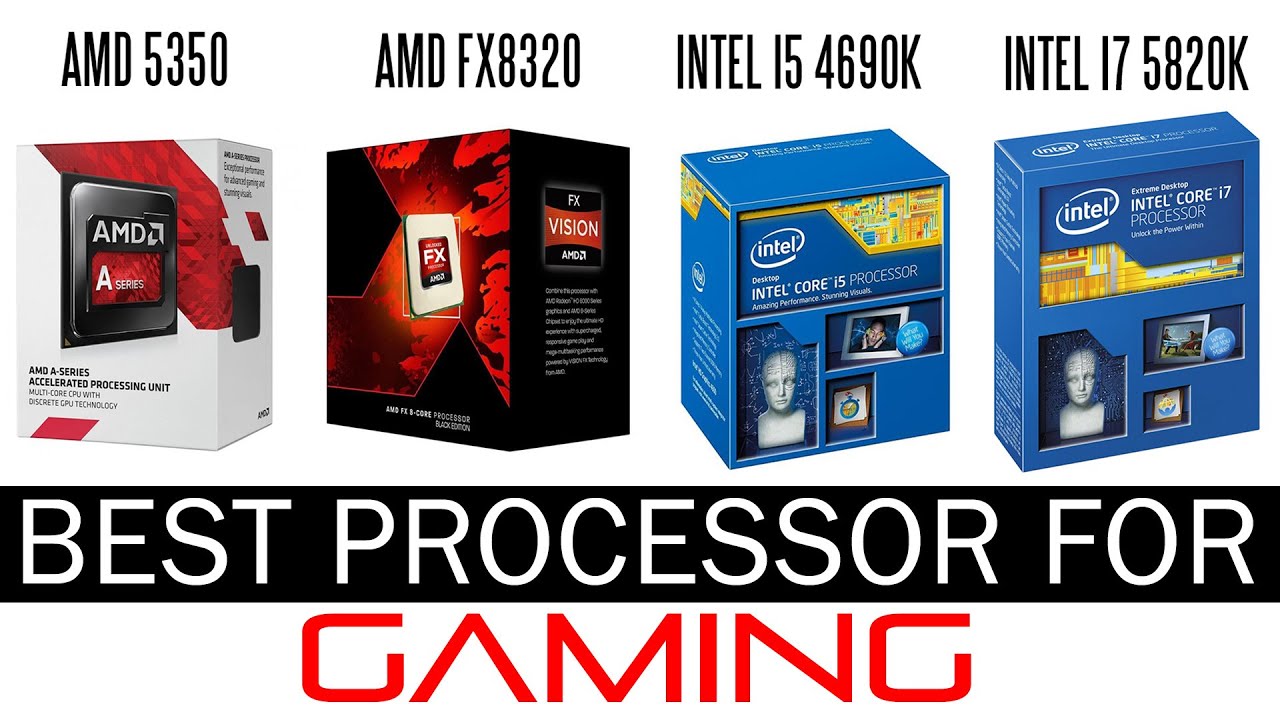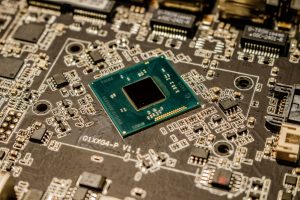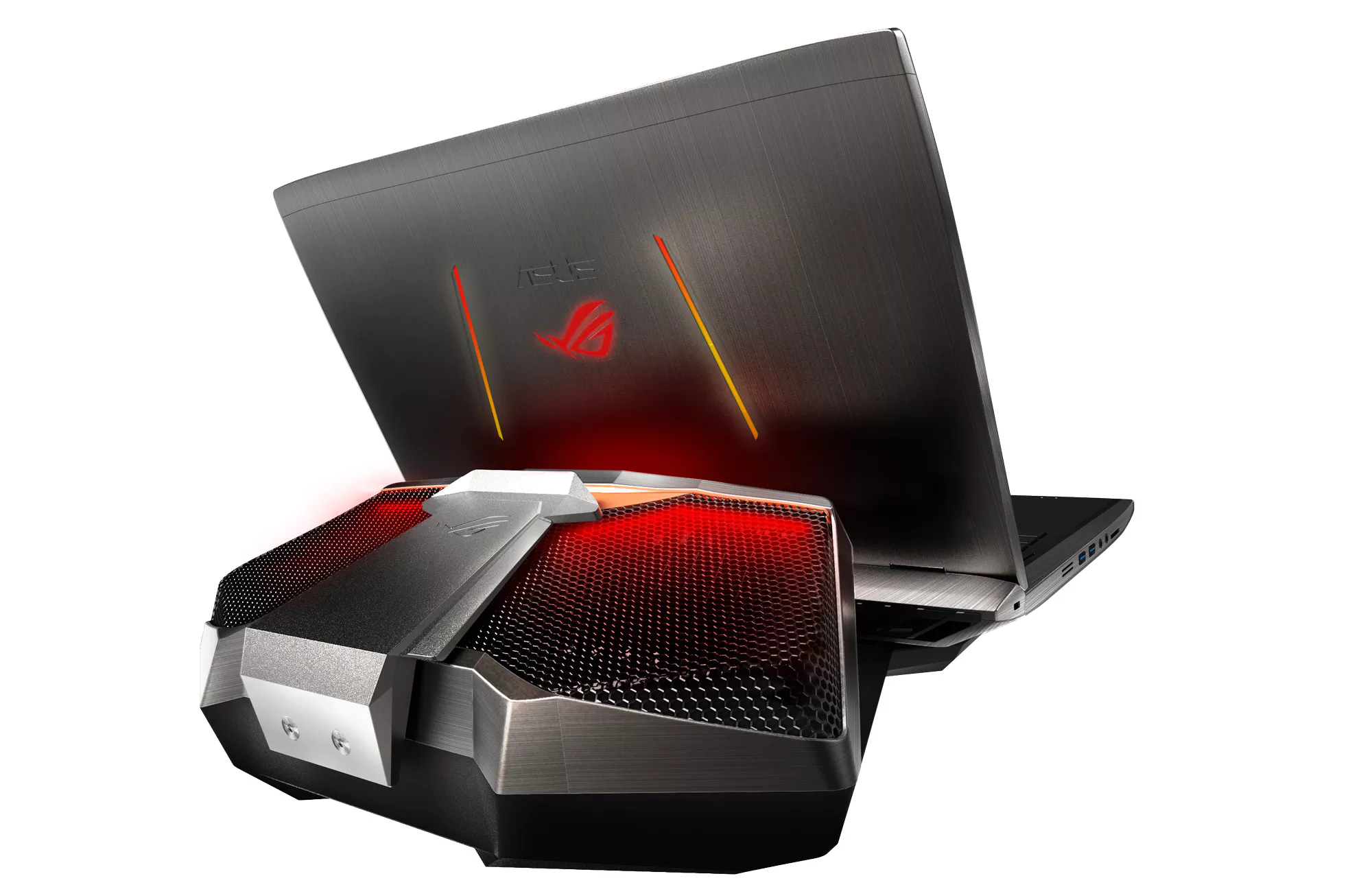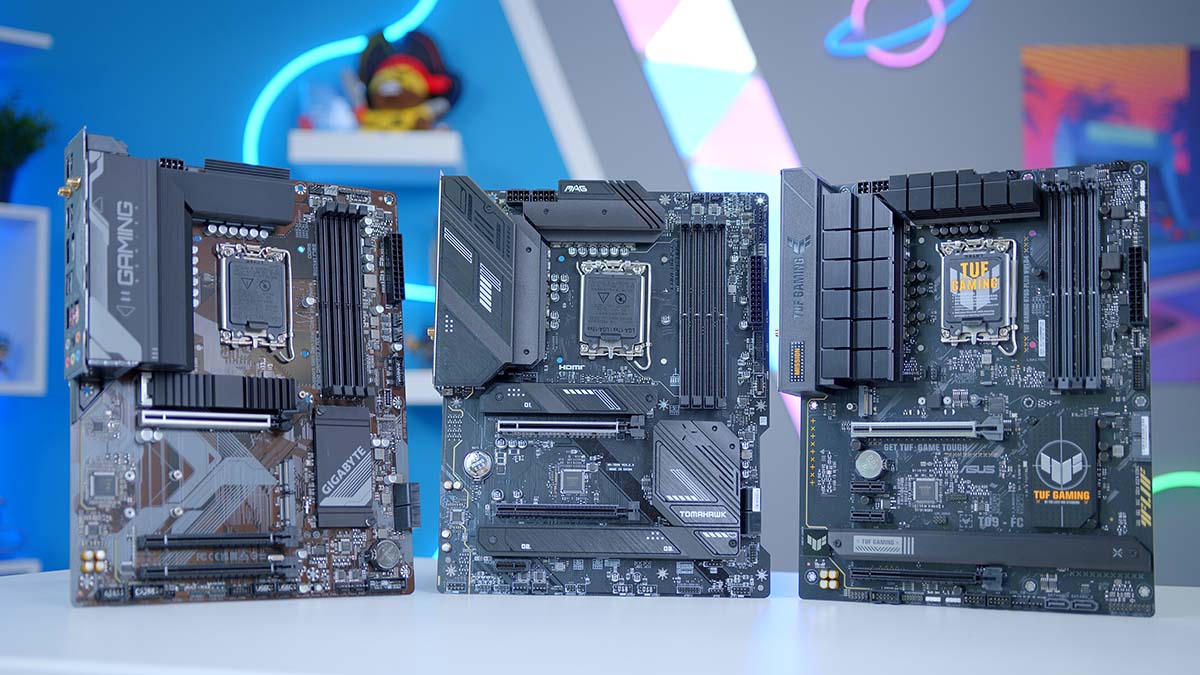Choosing the right hardware for your computer is of prime importance. Depending on your specific needs, your hardware’s brand can either make your tasks easier or harder. But what brand should you opt for? When it comes to computer technology, people have been debating over two of the top brands, Intel and AMD. More specifically, the Intel vs Ryzen rivalry is always flaring up on message boards.
In truth, both brands offer excellent performance. Based on trending discussions, however, AMD allows better multi-tasking while Intel appears to work faster.
What Do Intel and Ryzen Offer to Consumers?


Intel is known for being the undisputed computer hardware champion during the early 2000s. However, the trend among casual and heavy computer users changed with Advanced Micro Devices (AMD) releasing its first Ryzen version in 2017. Presently, the AMD Ryzen vs. Intel debate is stronger than ever. AMD released its third generation of Ryzen, which is in heavy competition against Intel’s ninth-generation hardware. Before answering the Intel vs Ryzen debate, let’s take a short look at both brands.
AMD Ryzen
AMD’s Ryzen 7 series, launched in March 2017, was a game-changer. The series is a significant AMD creation because it enabled the company to cement its place among the top producers of higher-end CPUs. Its innovative design set it apart from the company’s products and caught the eye of computer enthusiasts, including solid Intel fans. The 2017 Ryzen 1000 series boasted 16 threads and eight cores.
This series was quickly followed by the Ryzen 2000 series, which came out the next year with the now-famous Zen+ architecture. The said series merely had a marginal advantage over the 1000 series, however. In July 2019, AMD’s third-generation Ryzen was introduced. The hardware featured Zen 2 microarchitecture, TSMC’s smaller 7nm process technology, and a much sleeker design.
In June 2020, the company announced a new Ryzen 3000 version. This Ryzen 3000 series is made with XT processors with 4% increased boost clocks.
Intel
For decades, Intel hardware has been the leading CPU brand in the market. The earliest processor built by the company is the Intel 4004. The first is an extremely long line of processors; the Intel 4004 was the first made commercially available.
As early as the 1990s, the company has heavily invested in microprocessor designs. Intel’s hardware designs played a significant part in the rapid improvement of computers, becoming the leading producer of high-end CPUs and inspiring all other companies to follow suit. The brand is also known for its anti-competitive and aggressive stance against tech heavyweights like AMD and Microsoft regarding control over the computer industry’s future.
In 2019, the company’s market share massively decreased. Aside from facing prolonged product delays that included their 10nm process products, Intel’s overly aggressive game plan for moving forward was coupled with various OEMs deciding to use AMD CPUs. The rapid increase in the popularity of the smartphone also profoundly affected Intel’s client base. Since about 95% of today’s smartphones use ARM Holdings processors, the said company is now another major rival for Intel that caused further decline in sales.
Nonetheless, in 2020, Intel introduced its latest innovation called the 10th Gen Intel Core H-series. The said series’ headliner is the 10th Gen Intel Core i9-10980HK. Intended for heavy mobile and PC gamers, the series features a maximum frequency of 5.3 GHz Turbo as well as 16 threads and eight cores. They aim to provide gamers with increased responsiveness and stable gaming performance with their latest release.
AMD Ryzen 9 vs Intel i9
Both of these processors are priced at under $500, which is a high price to pay, especially because both are incredibly efficient for content creation and gaming. It’s time to take a look at their premier products and get a better grip on the Intel vs Ryzen debate.
Intel Core i9-9900K


- Launch Date: 2018
- Max Memory Size (dependent on memory type): 128 GB
- Lithography: 14nm
- Max Number of Memory Channels: (2) Dual Channel Memory
- Cores: 8
- Max Memory Bandwidth: 41.6 GB/s
- Threads: 16
- Processor Graphics: Intel® UHD Graphics 630
- Processor Base Frequency: 3.60 GHz
- Graphics Base Frequency: 350 MHz
- Max Turbo Frequency: 5.00 GHz
- Graphics Max Dynamic Frequency: 1.20 GHz
- Cache: 16 MB Intel Smart Cache
- Graphics Video Max Memory: 64 GB
- Bus Speed: 8 GT/s
Pros and Cons
PROS
- Two additional cores from Coffee Lake version
- An excellent contender with regards to multi-threaded apps
- 5GHz max single-core clock for one-threaded apps
- Unlocked multiplier
CONS
- More expensive than previous Intel Core i7 series
- No built-in cooler
- Runs hot
Intel Core i9 Series’ headliner is a sleek choice. It can be used efficiently for heavy games as well as for content creation. Check out the Intel i9 on Amazon to get a top-of-the-line processor for your PC.
AMD Ryzen 9 3900XT


- Launch Date: 2019
- Unlocked: Yes
- Memory Channels: 2
- Cores: 12
- PCI Express® Version: PCIe 4.0 x16
- Threads: 24
- Default TDP / TDP: 105W
- Base Clock: 3.8GHz
- CMOS: TSMC 7nm FinFET
- Max Boost Clock: Up to 4.6GHz
- Thermal Solution (PIB): Wraith Prism with RGB LED
- Total L1 Cache: 768KB
- Max Temps: 95°C
- Total L2 Cache: 6MB
- System Memory Specification: 3200MHz
- Total L3 Cache: 64MB
- System Memory Type: DDR4
Pros and Cons
PROS
- An excellent buy for a multi-threaded device
- One of the pioneers in introducing consumer CPUs that use PCI Express 4.0
- Low electric consumption
- Large L3 cache
- Convenient overclocking tools
- Has a beautiful built-in fan
CONS
- 1080p gaming, slightly behind other rivals
- Single-core performance
- Zero integrated graphics
AMD Ryzen 9 Series’ flagship processor has more threads and cores than Intel Core’s i9 counterpart. For the same price, AMD’s Ryzen 9 3900XT provides 12 cores, enabling continuous gaming and multimedia content making. Check out the AMD Ryzen 9 on Amazon today to get a powerful processor to play your games with.
AMD Ryzen 7 vs Intel i7
Both processors are geared towards giving consumers better gaming and content creation experience. The difference, however, is with their corresponding specifications at almost the same retail price. Here is our Intel vs Ryzen comparison for both their second-most powerful lines.
Intel i7 9700K


- Architecture: Coffee Lake
- L3 Cache: 12MB
- Socket: 1151
- Process: 14nm++
- Cores: 8
- TDP: 95W
- Threads: 8
- Memory Speed: DDR4-2666
- Base Frequency (GHz): 3.6
- Memory Controller: Dual-Channel
- Boost Frequency (Active Cores): 1 Core – 4.92 Cores – 4.84 Cores – 4.78 Cores – 4.6
- Integrated UHD Graphics GT2(Base/Boost MHz): 350 / 1200
Pros and Cons
PROS
- Has Intel UHD 630 GPU
- Clocked higher
CONS
- Low base frequency
- Few threads
Intel Core i7 9700K is one of the best in the said series. Compared to its closest counterpart, it has fewer threads and a low base frequency. Currently, it is priced at under $400. Check out the i7-9700K today to get an overclocking Intel processor.
AMD Ryzen 7 2700X


- Architecture: Zen+
- L3 Cache: 16MB
- Socket: AM4
- Process: 12nm
- Cores: 8
- TDP: 105W
- Threads: 16
- Memory Speed: DDR4-2933 (single rank), DDR4-2677 (dual rank)
- Base Frequency (GHz): 3.7
- Memory Controller: Dual-Channel
- Boost Frequency (Active Cores): 4.3GHz
- Integrated UHD Graphics GT2(Base/Boost MHz): no iGPU
Pros and Cons
PROS
- Easy overclocking
- Capacity to initiate 16 threads
- High base frequency
CONS
- No integrated GPU
- Max turbo is low
Priced at under $330, AMD Ryzen 7 2700X easily defeats its Intel Core counterpart. However, it does not have an integrated GPU and its maximum turbo is too low. Check out the AMD Ryzen 7 2700X today to get a processor that’s perfect for gaming and content creation.
Which Brand is Better for Gaming?
Based on the specifications mentioned above, Intel Core’s i9 series (more accurately its i9-9900K model) is observed to be much better for gaming purposes. Even though it merely contains 12 cores compared to AMD Ryzen 9 3900X’s 12 cores, it can provide gamers continuous gaming for heavy, multi-threaded titles. This is primarily due to Ryzen 9 3900X’s 1080p gaming value, which diminishes its capacity to render a better gaming experience than most of its counterparts.
Intel has also started being keen on adapting to the rapid changes brought on by smartphone technology. It aims to present users with CPUs that are at par or even better than the existing smartphone processors, which are currently supplied by ARM Holdings, another of Intel’s rivals.
However, this doesn’t diminish the Ryzen 9 3900X’s capability as an excellent option for high-spec gaming. It contains 12 cores and 24 threads, allowing gamers to experience superfluous gameplay. Additional cores and threads are particularly essential when opting to play newer games that require more cores and threads. Ryzen 9’s easy overclocking capability is a huge plus, and you can be sure that it will always stay cool due to its built-in cooling fan.
Both AMD Ryzen 7 and Intel i7 are excellent choices if you plan to use your computer to play light games that do not necessitate multiple threads as well as maxed out overclocking speeds.
Which Brand is Better for Content Creation?
Both Intel and AMD Ryzen enable users to perform easy content creation tasks. It is essential to keep in mind, though, that the Intel Core i9 and Ryzen 9 are both powerful higher-end CPUs. Thus, users who are prepared to spend more can easily choose between the two for better multitasking experience.
Nevertheless, both Intel Core i7 and AMD Ryzen 7 also provide efficient performance for light- to medium-capacity content creation. They can do the same multi-tasking requirements, especially when multiple threads are not necessary.
Which Brand is Better for Everyday Use?
Both the Intel and AMD Ryzen brands are great for everyday use. If you are not a heavy gamer or content creator, purchasing either an Intel Core i7 or an AMD Ryzen 7 should more than do the trick for you. These two models allow you to do both gaming and designing with little to no problems. You can efficiently perform everyday tasks for hours on end without worrying about the condition of your processor. The higher Intel Core i9 series and the AMD Ryzen 9 series are currently priced at $499, which is a considerable payment to make when you simply need a processor that can work for daily use.
Which Brand is Better for Businesses?
For business owners, both brands are spectacular additions to your craft. You can either choose an Intel i7 or a Ryzen 7 CPU to get your work done in a hurry. However, if you manage a huge business that needs you to perform heavy multi-tasking, it would be better to choose a higher-end processor. The Intel i9 series and the AMD Ryzen 9 series are some of the best models currently available in the market.
With either of these two, you can conveniently design and manage files using various applications. You can even opt for newer software that may require higher CPU capacity with these processors. However, do remember that Intel models are known to run hot quickly. This is a quality that you do not want in your processor, especially when you are performing numerous computations while trying to build your business’ website.
Which Brand is More Budget-Friendly?


AMD has always been known to offer state-of-the-art processors at affordable prices. Intel, on the other hand, has always been pinpointed as the leader in microprocessor development at the cost of an arm and a leg. AMD’s creation of the Ryzen series has drastically given Intel a run for their money and their consumers. Presently, AMD continues to develop processors with high specifications that would allow consumers to make the most of what they paid for.
Admittedly, the Intel Core i9 series is similarly priced as AMD Ryzen 9. Both are geared towards providing better gaming and content creation experiences for consumers. However, a quick look at both models’ specifications will tell you that AMD’s premier product offers more than what Intel does.
If you aren’t a heavy PC user, you can simply opt for the AMD Ryzen 7 or the Intel Core i7. Both provide almost the same capabilities, permitting users to perform everyday tasks like internet surfing, light-to-moderate gaming, and light multitasking.
In terms of budget, this round of the Intel vs Ryzen debate goes to AMD.
Overall Winner


The perpetual Intel vs Ryzen (AMD) debate has been going on for years now. Intel has been the leading manufacturer of CPUs during the early 1990s while AMD has always been coming in second. The year 2017, however, witnessed a decisive change in the said trend due to the introduction of AMD’s Ryzen series as well as the advent of smartphone innovation.
Nowadays, AMD is finding more and more ways to inculcate itself into the lives of gamers and content creators alike. Because it offers more added capabilities to its models, more and more consumers find themselves more partial to said brand. In the end, the battle between today’s top CPU brands is more about price than performance because both companies offer almost similar capacities — AMD Ryzen is currently winning the race.
After checking out this Intel vs Ryzen debate, you might want to read our guide on how to build a gaming PC and our list of the best gaming keyboard models.











